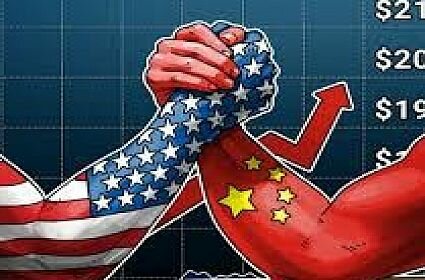Beijing's meaningful message to Washington

TEHRAN - Although Donald Trump, president of the United States, is trying to identify himself as a winner of the economic and security dispute with China, the evidence suggests that Beijing is still playing a powerful role in the conflict.
Of course, there were disagreements between Beijing and Washington over security and cyber-security issues at the time of Barack Obama, but the emergence of trade and economic disputes in their bilateral relations should be analyzed "beyond a simple controversy."
In other words, from the beginning of 2017 and Trump's presence at the top of the political and executive equations of the United States, we have witnessed the emergence of constant crises and challenges in the relations between Washington and Beijing. Many international affairs analysts rightly believe that the conflict is not limited to economic and commercial issues, and it will also affect the political, security and regional spheres.
The fact is that the president of the United States has not yet been able to take any measures to curb China's economy, since Beijing stands firmly against the White House's supportive policies.in other hand, Evaluating the consequences and effects of Trump's policies (in the long run) on the international economy and the domestic economy of the United States has become the concern of many experts in the field of international economics in recent months. This issue has also shown itself in the trade war between the United States and China.
The story here does not end there! The Chinese authorities have shown that they are not willing to compromise with the Trump government by sending significant signals to the United States. As New York Times reported, An American scholar who has advised President Trump on China said late Wednesday that he was not given a visa he sought to attend a recent conference in Beijing, in what he called apparent retaliation for American restrictions on visas for visiting Chinese scholars.
The scholar, Michael Pillsbury, director for Chinese strategy at the Hudson Institute, a conservative think tank in Washington, said he applied for a visa with the Chinese Embassy in Washington on March 22 but failed to get approval to attend the conference last Sunday, which was organized by a research institute in Beijing.
Mr. Pillsbury said that when he raised the issue with a Chinese Communist Party official he knows, the official pointed to a recent New York Times article that said counterintelligence officials at the F.B.I. had been canceling the long-term visas of some Chinese scholars .Mr. Pillsbury said he took that to imply that his visa application had been stymied in reprisal for the new restrictions.
